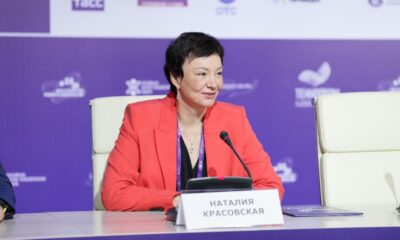Educational Issues
A Pragmatic Reconciliation Of Education And Morality In Nigeria -By Nkom Blessed Chat

1.0 INTRODUCTION
Man according to a Confucian disciple called Mengzi is naturally moral and good; to him, man has every natural inclination and tendency in him to do good and be morally upright. However, Nigeria as a country has faced a lot of hitches with respect to been educated without been moral. Our country has always been known for high rate of emphasis on the issue of morality but at the same time with high records of immorality through the ages. Meanwhile, different traditions have used their diverse thought patterns in trying to reconcile this very problem of education and morality, emphatically on whether knowing morality implies doing and practicing it, whether the morally sound individual is only known to be moral when he exhibits such charisma, whether education plays a vital role to morality, whether morality is only practiced by the educated men who claim having a good and appreciable knowledge of it and been ignored by the ignorant, whether our forefathers who were not educated never practiced morality, and finally whether the present day morality could be compared to theirs. These and many more are the problems which have existed since time immemorial. Meanwhile, on the other hand, pragmatism as a philosophical doctrine has always emphasized on the workability of ideas, theories, and knowledge at large less they remain insignificant as abstract entities in us and to the society. The same applies here that we see many morally educated men act in some licentious manner and sometimes see the ignorant do the otherwise which has always been an issue that calls for a serious concern on whether this so called education is really a prerequisite for been practically moral.
However, the onus alongside the thrust of this paper is to see how pragmatism can be properly harnessed and applied as a significant philosophical doctrine to our moral life and also to critically take a pragmatic reconciliation of education and morality taking in mind strictly the educational and moral ideologies of both Plato and Jean-Jacque Rousseau.
2.0 CONCEPTUALIZATION
It was Aristotle in his work called the organon that for any philosophical argument to be clear and distinct, some major terms must be clarified. It is against this backdrop that I would like to clarify some key terms.
2.1 Education
The concept education has no univocal or universally used definition since it is conceived in different ways by people. Etymologically, the word education originates from the Latin words educare and educere. “Educare” means to nourish, to bring up, or to train and to mold. The child has to be brought up like a plant in the garden by the teacher. His potentialities should be developed with proper care and nourishment. Educere simply means to lead out, to draw out and to bring forth; each and every individual has the innate powers. The innate powers of the individual should be properly cared for and given scope to be developed by those assigned the task of educating. However, education involves both the training and molding of individuals and the unleashing of innate potentialities which could be seen and exemplified by Socrates when he played the role of the mid wife as he would say by gad flying people and helping them bring out their innate knowledge via asking of questions.
2.2 Morality
Morality simply means the rightness or wrongness of human acts. Morality is that which determines the quality in human acts by which we call them right or wrong, good or evil.
2.3 Pragmatic
The concept pragmatic stems from the Greek word pragma meaning action. However, the pragmatic nature of something simply means its workability and practicality which means the practical usefulness of things or concepts makes them pragmatic.
3.0 NIGERIAN MORAL-EDUCATIONAL STATE
One of our concerns as people living in a country that lay so much emphasis on the issue of morality should be whether we live a morally sound life or not because it is expected of every Nigerian to have the natural propensity of being moral. Historically speaking, morality has been in existence for long even though it is not objective and truthful in itself but rather relative and highly subjective since it varies according to individuals. What we have as morality might not be the same with that of our forefathers, the rate at which it is practiced today is not the same with that of antiquity. In antiquity, morality was held with high esteem but has gradually been losing its worth and pragmatic nature as seconds turned to minute, minutes to hour, hours to day, days to week, weeks to month, and months transcending to years which makes this same highly pronounced morality country record immorality rate.
Be that as it may, a known fact about our country Nigeria is that morality is fast eroding despite the many educational institutions in the country, how different militia is emerging also despite our level of education which places a serious concern in the critical mind that leads to yearning to know whether morality rate could be determined by the number of institutions and educated men.
4.0 A PHILOSOPHICAL OVERVIEW OF EDUCATION AND MORALITY
4.1 PLATO’S IDEOLOGY OF EDUCATION AND MORALITY
Plato was a prominent disciple of Socrates who was executed by the Athenian Government of his time because he taught doctrines that they regarded an offensive one. As such Plato became very grieved because of the evil treatment Socrates received as a result of an out-shown and pragmatic ignorance of the Athenian Authorities. He however became convinced that the politicians were suffering from ignorance, and the only remedy to the ill in the society was to educate future politicians to become philosophers. He came to the conclusion that ignorance is the source of evil and knowledge (education) is the source of good (morality).
4.2 JEAN-JACQUE ROUSSEAU’S VIEW OF EDUCATION AND MORALITY
Rousseau, a modern philosopher made a contrary assertion to that of Plato that the coming of learning and civilization brought evil, that morality has now been sacrificed on the altar of learning, unlike when man was in the state of nature having only the knowledge of himself and him alone, all he thought of in that state was himself and nothing else, man was totally at peace and in a state of total happiness, not until when people gradually became enlightened by the coming of civilization specifically education, and that is why he came up with the assertion that learned men have replaced virtuous men, knowledge has replaced morality. Invariably, Rousseau said education is the source of societal evil and immorality as against Plato’s view.
5.0 A PRAGMATIC RECONCILIATION OF EDUCATION AND MORALITY.
We have analyzed the thoughts of two vital philosophers who represent two different traditions in philosophy (Ancient and modern) as far as this issue is concerned. Plato said one needs to be educated in order to be moral; that is all educated men are moral and all moral men are educated (but is that what we actually see in practicality) today? No it is not because we have recorded cases of well-educated men who portray immoral behaviors, and have seen the societal annihilated creatures who we often call the illiterates or ignorant exhibit morally sound behaviors which sets us on an academic pedestal and in a state of total educational blindness on weather education is a necessity in trying to be moral or not. Rousseau on the other hand postulated that education brought immorality and evil to the human society which was initially devoid of this so call evil when man lived in his happy ignorance in the state of nature with no knowledge of anything other than his individual self since man was so individualistic and egoistic in this state which connotes that Rousseau’s state of nature was characterized by individualism, self-centeredness and egoism.
However, the probing questions we need to reflect on are; Are all moral principles innate (innatism)? Or are some acquired via the influence of external forces (empiricism)? Does education play any significant role to morality? Can one be moral even without having any knowledge of that which he practices as a moral principle?
Be that as it may, for these questions to be properly answered, one must put to heart the concept of education. First education is very important to morality when we accept that some moral principles are empirically acquired through the senses since they are being learned from other people and sometimes from written sources and materials or books which places Plato’s assertion of knowledge been the source of good exemplified by so many educated men who because of their little educational exposure or enlightenment know the importance and value of being moral by practicing it. But education on other hand could be considered useless and insignificant when we see morality from the point of being innate and inbuilt in us because we don’t need any sense perception via the process of learning in order to acquire them, but then education still comes in when we realize those things are moral principles since we must sometimes be convinced that they are morally upright before we exhibit them and even claim we are morally sound and upright. Second, one cannot be moral without the knowledge of that which he practices as a moral principle since doing something depicts knowing and having an idea of it, and also because the emanating point of doing is knowing (you must know before you do).
Albeit, a person can be ignorant of the definition of a moral act but yet be moral and practice that moral act; this clearly shows that education is not the sole source of morality, and that there are moral principles within the reach of man that education does not necessarily have to provide. Nevertheless, education can impact the knowledge of morality, and make a person moral; a double edge sword indeed because it can also impact the knowledge of immorality and corrupt the learned man. Therefore there should be a synergy between morality and education, that is to say that morality should also guide education and the pursuit of knowledge. So, while education can aid to form fine moral men, morality also aids to form fine educated men.
6.0 CONCLUSION
Both education and morality work in paripasu (hand in hand) as the Latin adage will have it since they both work in trying to enhance their applicability; while education is important in learning some moral principles that aren’t innate in us, those innate moral principles on the other hand are paramount in guiding us towards learning only moral principles instead of learning both good and bad.
NKOM BLESSED CHAT
STUDENT OF PHILOSOPHY VERITAS UNIVERSITY ABUJA
08162878128
chatnkom@gmail.com










